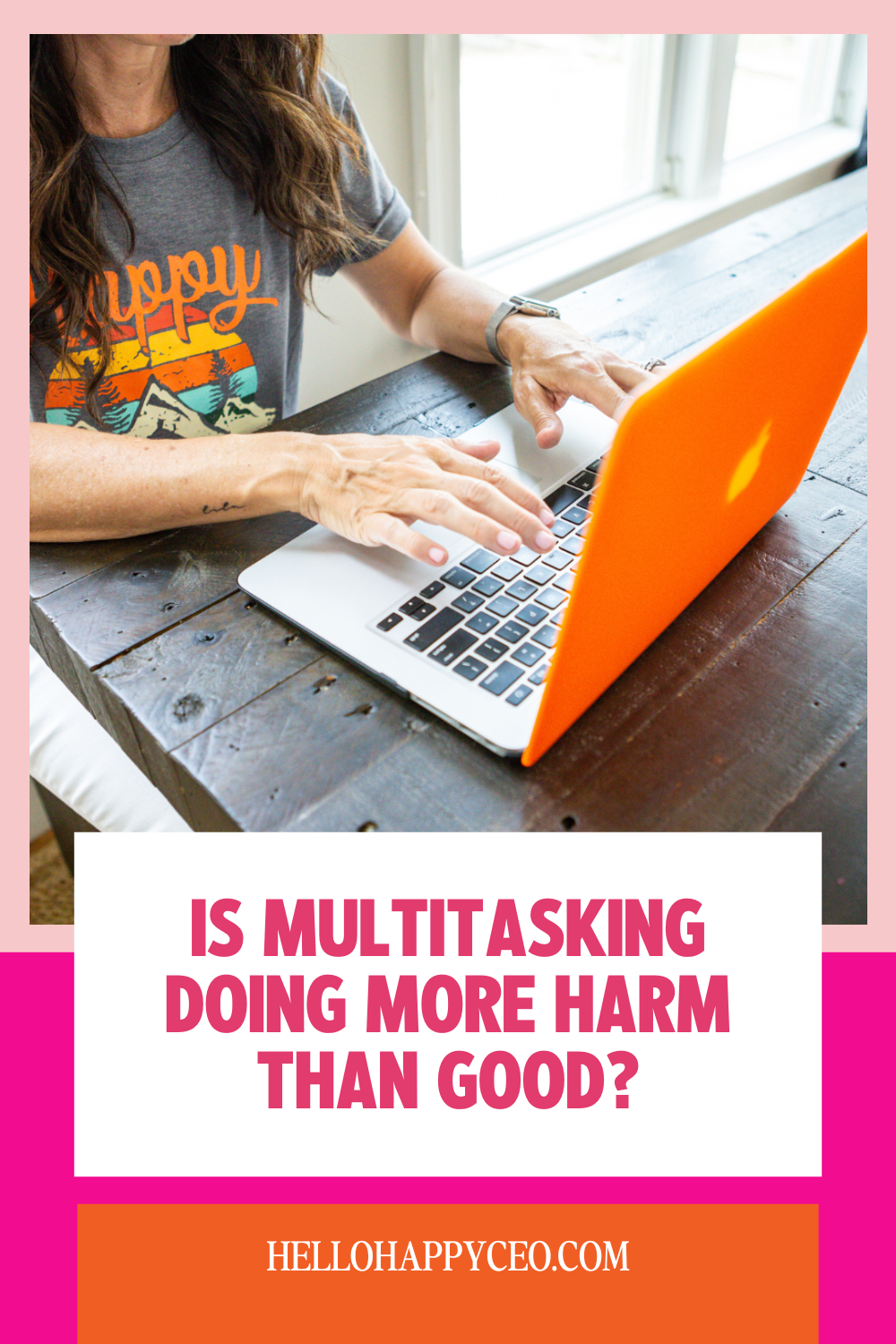In general being able to multitask is seen as a worthwhile, and strived-for pursuit in the world today. BUT could multitasking be doing more harm than good?
How many times have you done just one thing at a time? Women are generally known to be masterful multitaskers. With the extra-busy, fast-speed lives that we are living these days, multitasking isn’t simply the norm, it’s actually the rule.
I believe that so much of our daily stress is caused by that horrible feeling that time is escaping us. We are constantly feeling the need to run to where we are going, and we are racing through life just trying to get everything done in some sort of impossible time frame.
What type of life does that leave us living?
One of the most important lessons I’ve learned over time is to slow down and try to focus on doing one thing at a time.
I know you are probably thinking “how can I possibly be productive if I am doing only one thing at a time?”.
Well that leaves the question – How present are you when you are doing multiple tasks all at once? If you focus on just one thing from start to finish, limiting your distractions, you will actually get more done. Focusing on one thing, bringing your attention to your intention, helps you stay focused and reduces that feeling of perpetual overwhelm.
Uni-tasking in action
I know it might not seem easy to do one thing at a time when you feel like you can do three, but uni-tasking means that rather than making your family dinner while talking on the telephone and watching TV, you rather leave your phone plugged into the charger and prepare your meal with total concentration, love, and full awareness.
It’s in fact in our nature to be able to juggle so many things, but coupled with the speed and intensity at which we are living, it does honestly feel good to slow down. When you really think about what you are missing out on, it turns out that it’s usually the present moment. Surrender does not mean giving up; it actually means giving over. It’s letting go, releasing.
Slow down, focus, and redesign your task list accordingly so that you infuse your life with the wonderful skill of uni-tasking.
Our tips for unitasking
Prioritize:
Figure out what you need in your schedule personally and professionally, and what you can realistically take off your plate and maybe outsource. What are the top three things you need to get done today?
Delegate/outsource:
Speaking of outsourcing – What systems and people need to be in place for you to offload some of your work, and which of those tasks can you completely hand over to someone else to do for you?
Set boundaries:
You are going to need to set some very clear cut boundaries to go by, and set that as a standard for when you shut off work mode. A great idea is a phone-fast. Once a week or so, for a couple hours or full day, get off the phone and all electronics in fact. Stop texting, checking Instagram and emails, and all your feeds.
Get in the moment:
Take a good look at how you are really spending the majority of your time. Ideally you want to be investing your time in memories, experiences and enjoying your life, not only a constant crossing off of things on your to-do list and paying the inevitable bills.
Shake it up:
When all your energy is focused on the mundane tasks of your day-to-day living, so often, your passions can get pushed to the side. And almost all of the time, you don’t even actually realize that you’ve put your happiness on hold. Take a moment and acknowledge your purpose and passion now, own the dream you’ve decided on, and make that a priority today.
Multitasking takes up more time than uni-tasking does.
That’s because your brain has to shift its focus from one task to another, which takes time and energy. “You can’t just switch your attention back and forth between tasks,” says David Meyer, Ph.D., a professor of psychology at the University of Michigan who studies cognitive control processes in the brain. “It takes additional effort.”
How much extra effort? In one study published in 2001 by researchers at Columbia University, participants were asked to perform two tasks simultaneously on separate screens: memorize words while listening for tones or letters played through headphones (a verbal task) and count how many times a certain number appeared on screen (a visual task). Those who multitasked did worse than those who performed each activity separately–and even worse than those who didn’t attempt any kind of dual activity at all! What’s more: Subjects reported feeling less mentally fatigued after completing single tasks rather than combined ones; their brains had apparently been taxed by trying so hard not just once but twice over…
Think that over and maybe take a second to slow down and focus on that one thing.

leave a comment